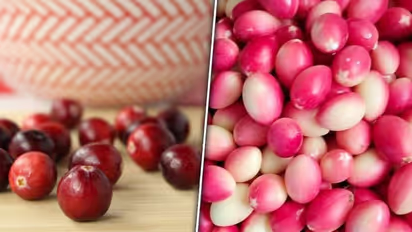Unraveling the Cranberry-UTI connection: Separating fact from fiction

Synopsis
Unveiling the Truth: Does Cranberry really help treat UTIs? Examining the scientific evidence, debunking myths, and providing clarity for informed choices
Urinary tract infections (UTIs) are a common condition that affects millions of people worldwide. Many individuals seek natural remedies to alleviate symptoms or prevent recurrent infections, and cranberry juice and supplements have long been touted as a potential solution. However, the effectiveness of cranberry in treating UTIs remains a topic of debate. In this article, we delve into the scientific evidence surrounding cranberry's role in UTI treatment, exploring its purported benefits and limitations.
The Cranberry-UTI Connection
Cranberries have been traditionally associated with UTI prevention due to their high content of proanthocyanidins (PACs). These compounds were believed to hinder bacteria from adhering to the urinary tract, thereby reducing the risk of infection. However, recent studies have yielded conflicting results, warranting a closer look at the evidence.
ALSO READ: City Palace to Lake Pichola: 10 majestic gems of Udaipur's enchanting heritage
The Mixed Bag of Research
Several studies have examined the potential benefits of cranberry products in preventing UTIs, particularly in women with recurrent infections. While some research indicates a modest reduction in recurrence rates, other studies have failed to find significant evidence supporting cranberry's effectiveness. The overall body of evidence is not strong enough to definitively establish cranberry as a reliable treatment for UTIs.
ALSO READ: Dilwara temple to Brahma temple: Discover the spiritual gems of Rajasthan
Limitations and Considerations
Despite the inconclusive evidence, cranberry products are generally safe for consumption. However, it's essential to exercise caution, particularly if you are taking certain medications like blood thinners, as cranberry can interact with them. Additionally, cranberry juice and supplements should never replace medical treatment for UTIs. Prompt diagnosis and appropriate antibiotic therapy, prescribed by a healthcare professional, are crucial to effectively manage UTIs.
While cranberry juice and supplements have long been associated with UTI prevention, the scientific evidence supporting their efficacy remains inconclusive. Although some studies suggest a potential benefit in reducing recurrence rates, more robust research is needed to establish cranberry as a definitive treatment option. If you suspect a UTI, it is crucial to consult a healthcare professional for an accurate diagnosis and appropriate treatment. While cranberry products can be consumed as part of a healthy diet, they should not replace medical intervention in the management of UTIs. As ongoing research sheds light on the cranberry-UTI connection, it is important to approach natural remedies with an evidence-based mindset and prioritize professional medical guidance.
Explore the latest Lifestyle News covering fashion, wellness, travel, Food and Recipes, and more. Stay updated with trending Health News, fitness tips, and expert insights to inspire your daily living. Discover personalized lifestyle trends that keep you stylish and informed. Download the Asianet News Official App from the Android Play Store and iPhone App Store for everything that adds value to your everyday life.